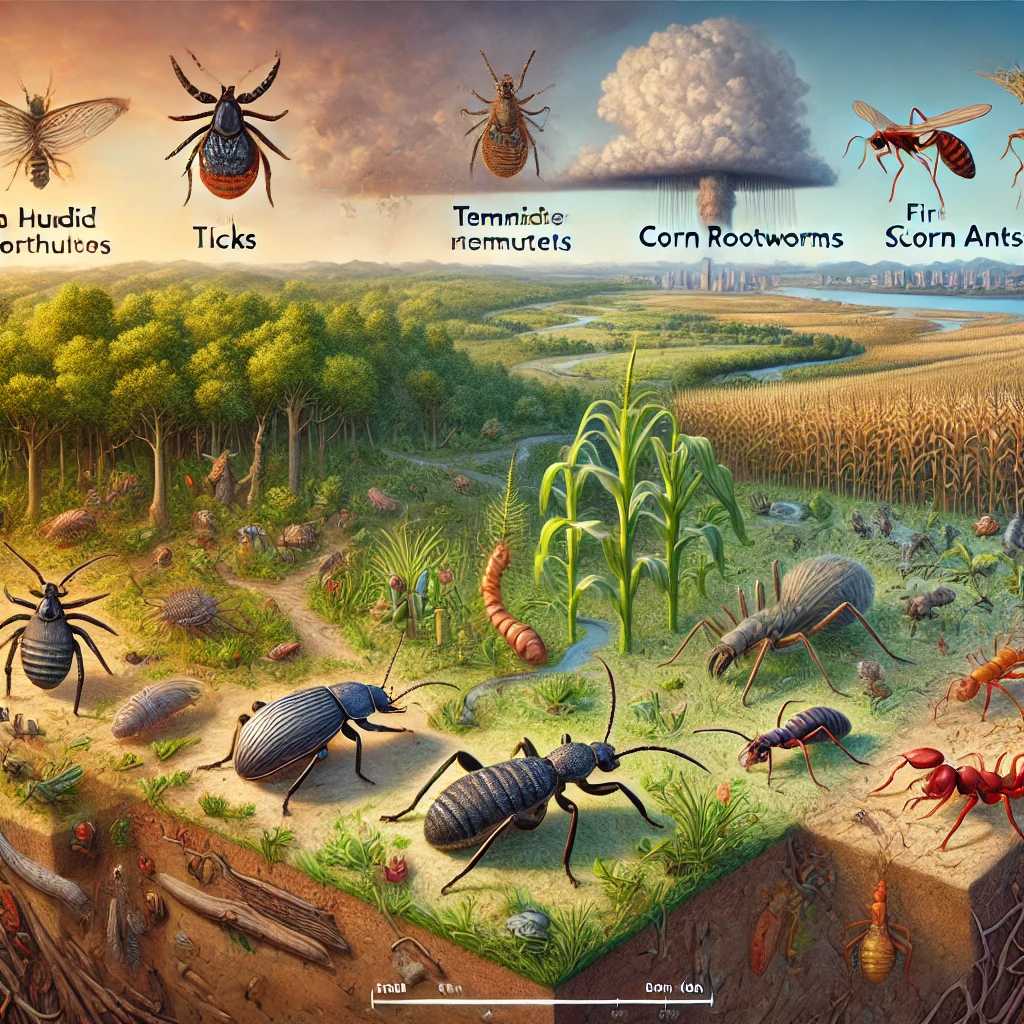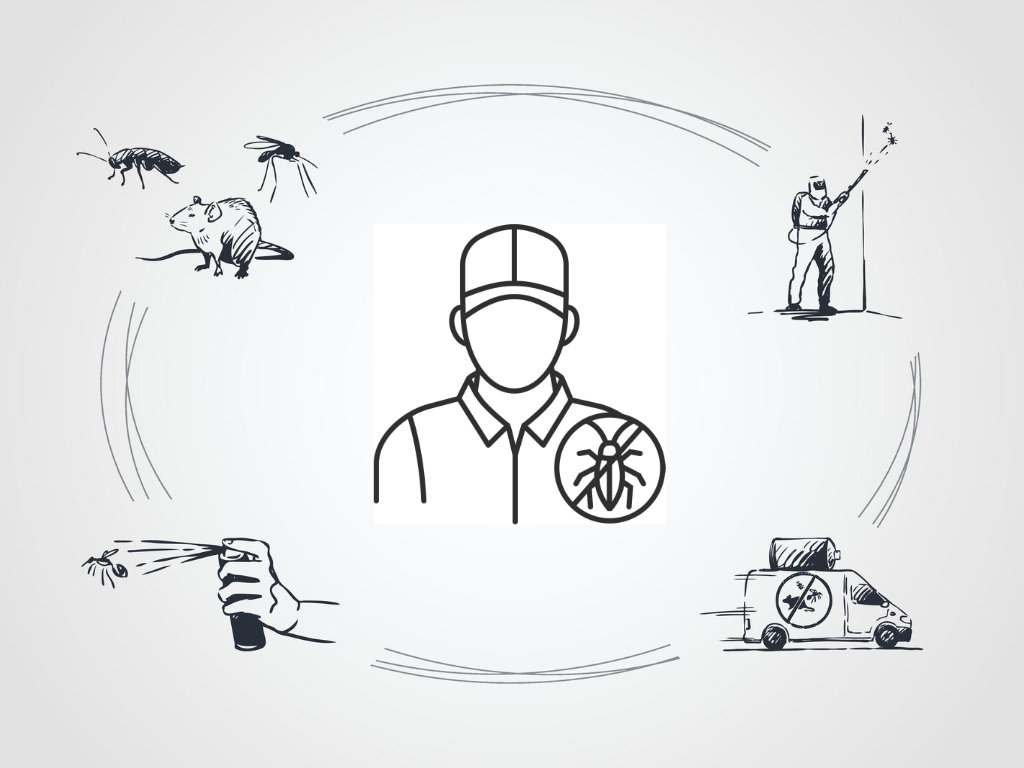The changing climate reshapes ecosystems, drives pests into new regions, disrupts seasonal patterns, and introduces…
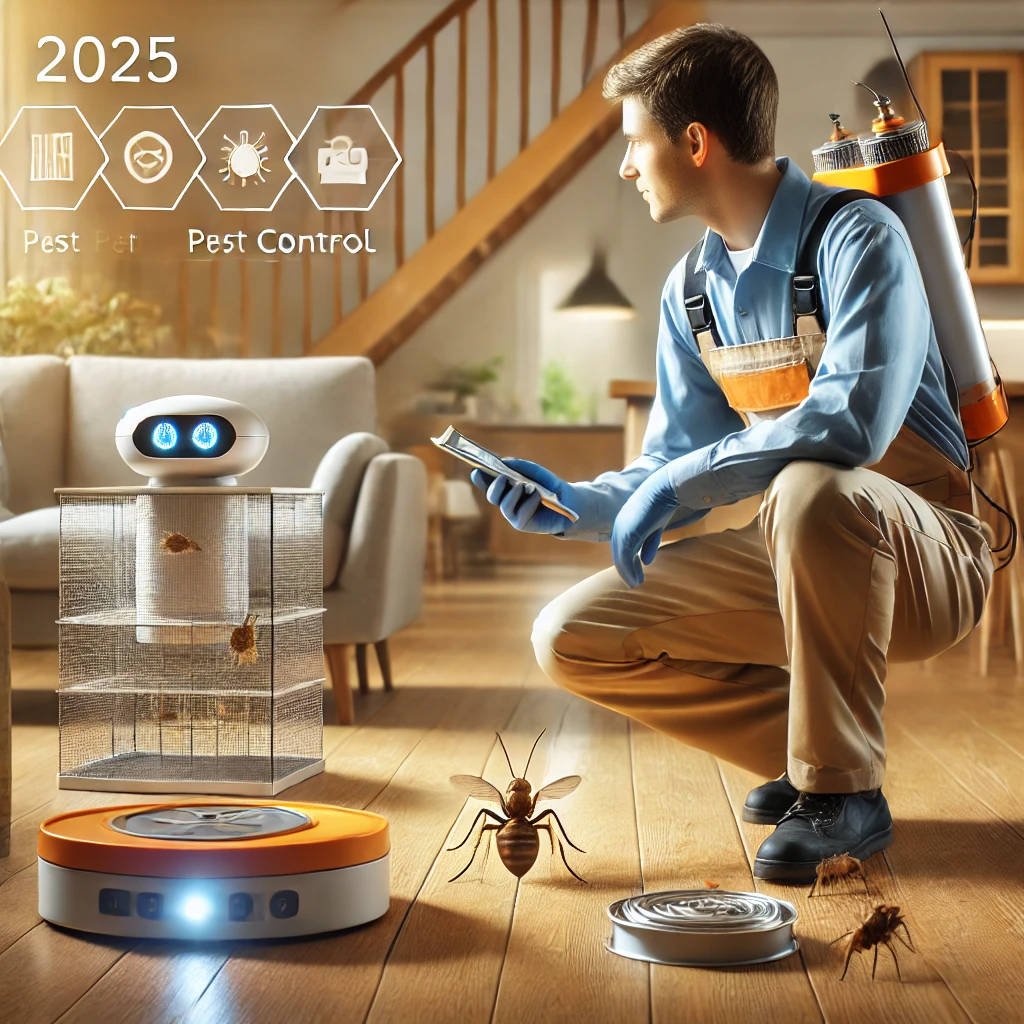
2025 Pest Control Trends: Innovation and Sustainability Lead the Way
The pest control industry is on the cusp of a transformative era. As urbanization continues and climate change alters ecosystems, the need for practical, sustainable pest management is becoming more pressing. From cutting-edge technologies to environmentally friendly solutions, the 2025 pest control trends are shaped by innovation and a growing demand for eco-conscious practices. Whether it’s the increased use of smart traps or new methods to reduce chemical dependency, pest control professionals must adapt to a rapidly changing landscape. This blog will explore the key 2025 pest control trends poised to revolutionize the pest control industry in the years ahead.
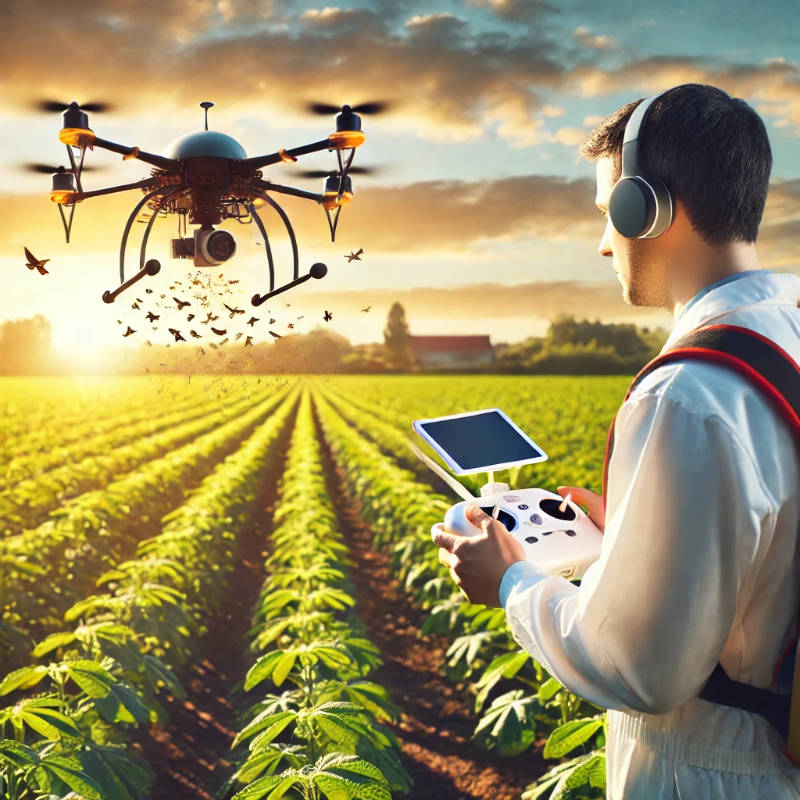
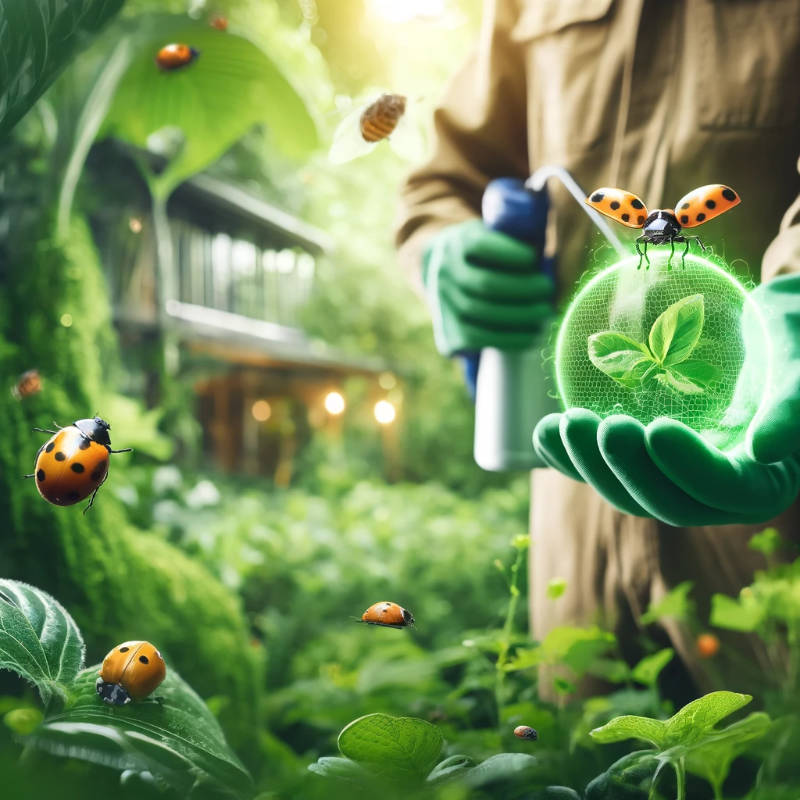
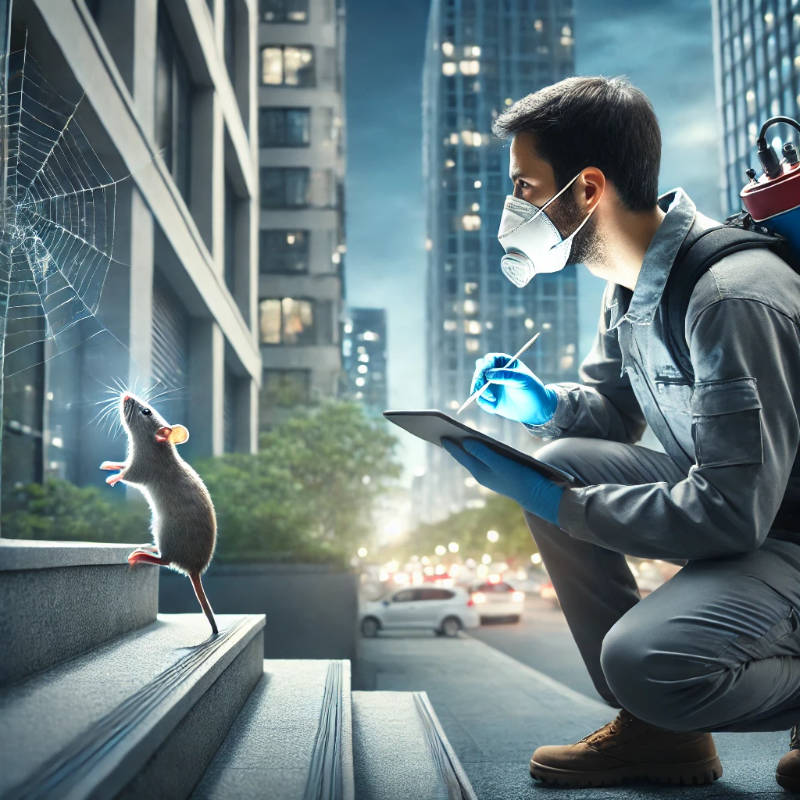
🎧 2025 Pest Control Trends: Innovation and Smart Solutions
✨ In this episode, we discuss the latest trends in the pest control industry for 2025, focusing on innovation and smart solutions. ✨
🎙️ Powered by iHeart Podcasts 📻

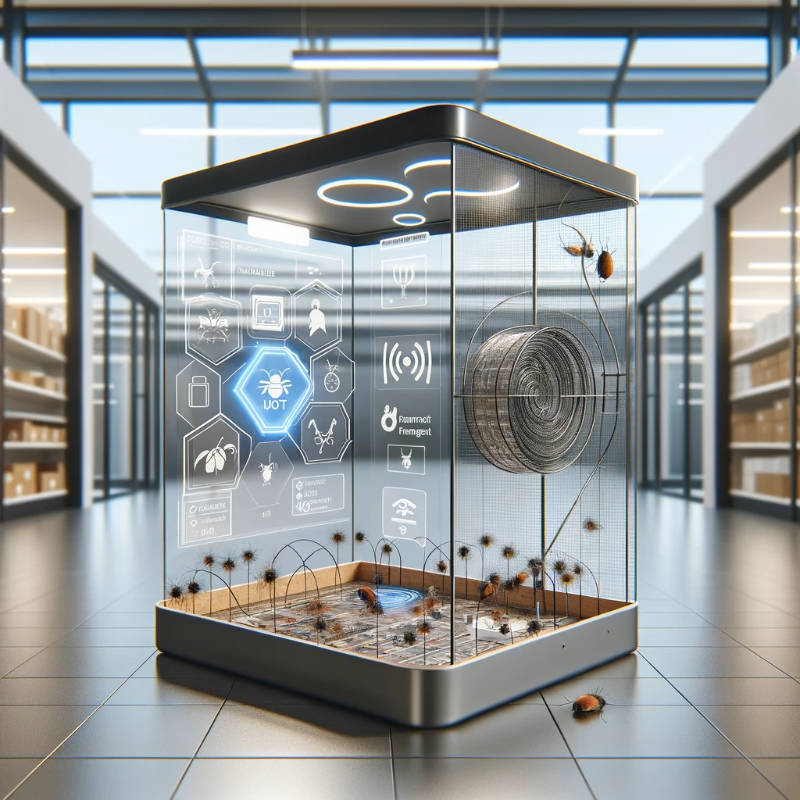
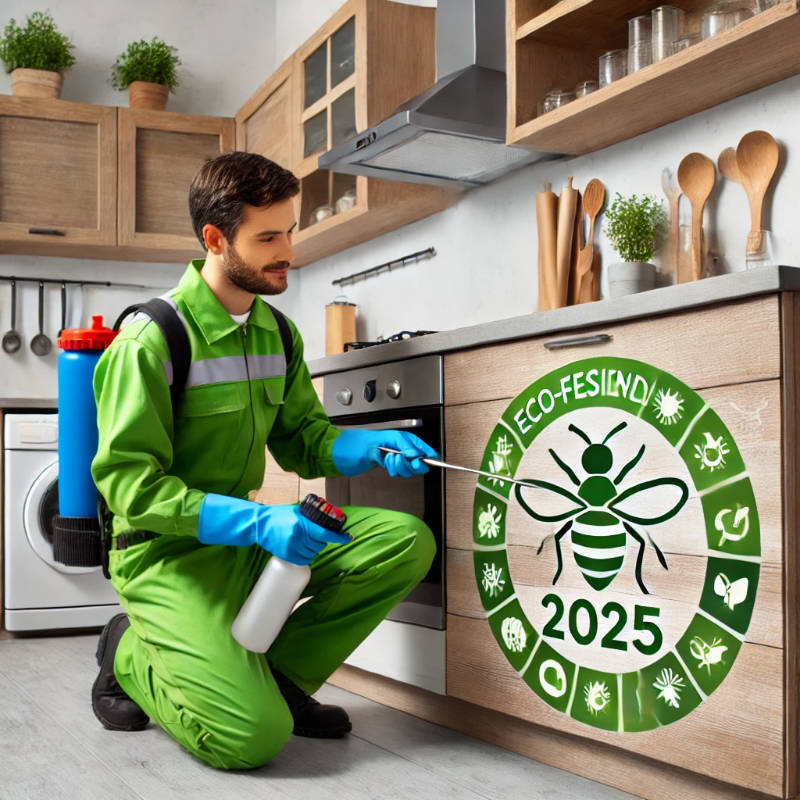
1. Tech-Driven Pest Control: Smart Traps and IoT Solutions
Technology continues to disrupt industries, and pest control is no exception. In 2025 pest control trends, integrating smart devices and the Internet of Things (IoT) is driving more efficient, real-time pest monitoring and management.
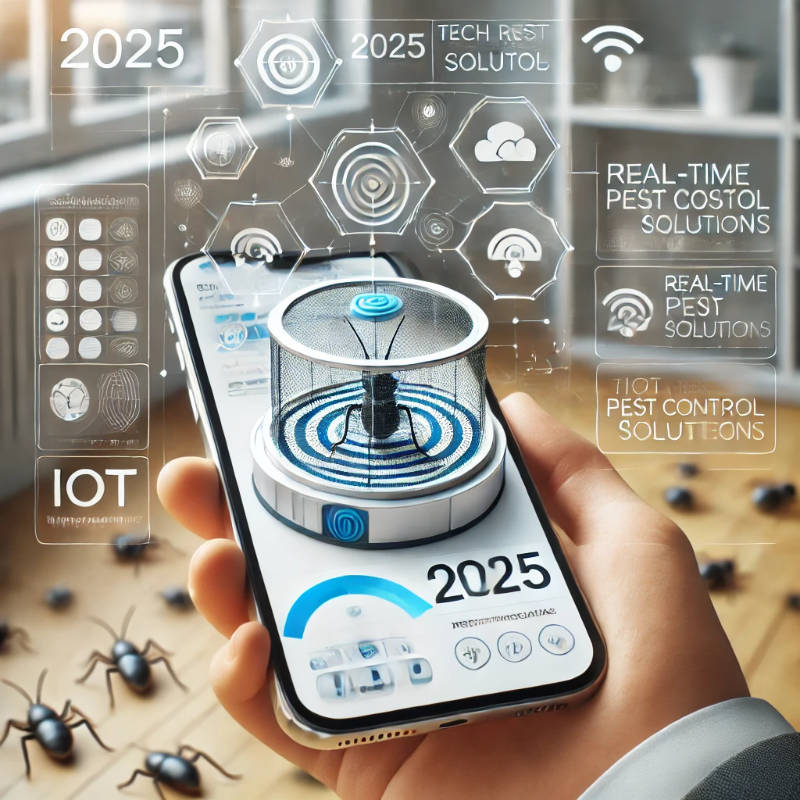
Key innovations include:
- Ingenious traps: IoT-enabled traps that can monitor pest activity, send real-time alerts, and even self-reset, minimizing human intervention while enhancing accuracy.
- Automated pest tracking: Sensors and data analytics are now being used to predict pest behavior and detect infestations before they become widespread.
- Drones and robotics: Drone technology is helping to survey large areas, such as agricultural fields, for pests. Robotics are also being deployed to reach difficult or dangerous areas for humans.
This tech-driven approach improves pest detection and response times and reduces the overall cost and environmental impact of pest control.
2. Green and Sustainable Solutions in 2025 Pest Control Trends
As consumers and businesses become more environmentally conscious, the pest control industry is moving away from chemical-heavy solutions in favor of greener alternatives. Sustainable pest control practices will dominate the industry in 2025, focusing on minimizing the environmental footprint.
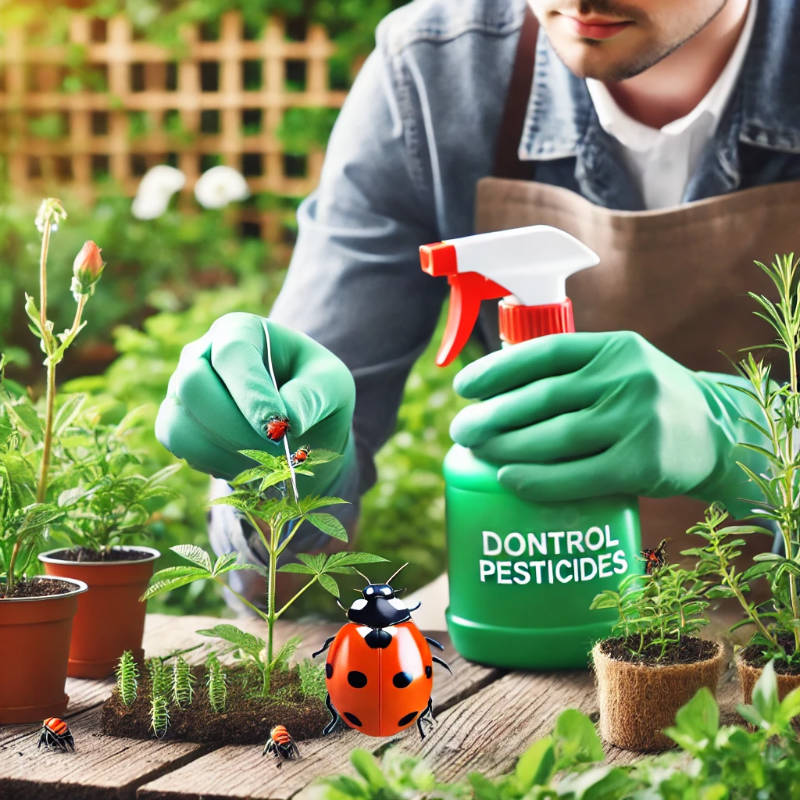
Emerging trends include:
- Biological pest control: Using natural predators, like ladybugs or nematodes, to control pest populations is becoming more mainstream.
- Eco-friendly pesticides: New formulations are being developed that target pests while non-toxic to humans, pets, and beneficial insects.
- Integrated Pest Management (IPM): Combining biological controls, monitoring systems, and cultural practices, IPM will continue to rise as a holistic approach to sustainable pest control.
3. Climate Change and Pest Migration
As climate patterns shift, so do the habitats of various pests. Warmer temperatures and changes in rainfall patterns allow pests to migrate to new areas, bringing unique challenges to pest control professionals.
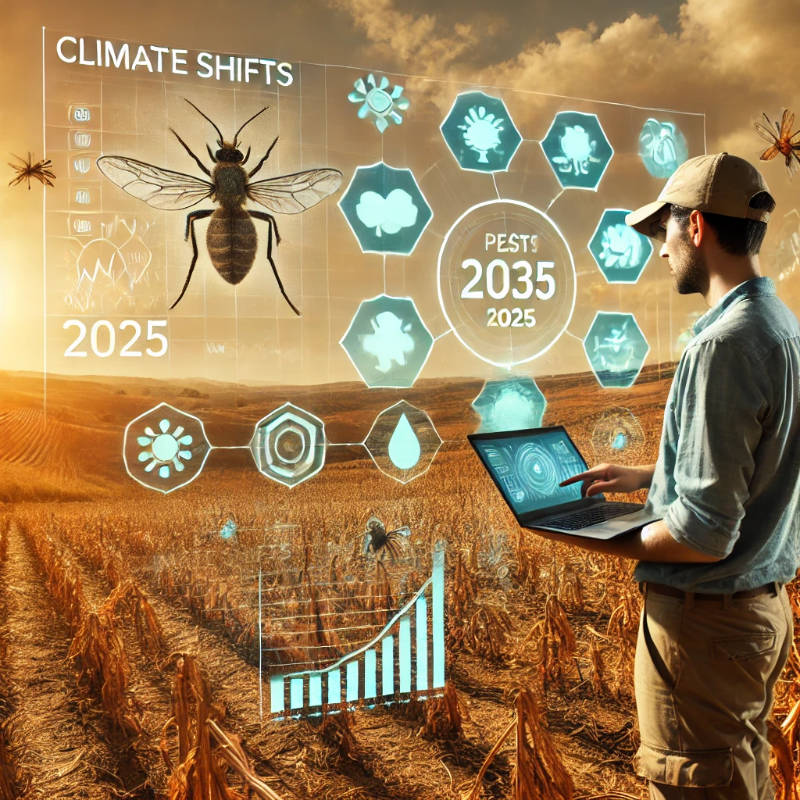
Impacts include:
- New pest species: Regions that have traditionally been pest-free may now face invasions from species previously limited to warmer climates.
- Longer pest seasons: Mild winters and warmer summers will result in extended pest breeding seasons, requiring more year-round pest control services.
- Increased disease transmission: Pest migration can lead to greater disease transmission, especially from mosquitoes and ticks.
Understanding the relationship between climate change and pest behavior will be critical for pest control businesses to adapt their services accordingly. These shifts in climate and pest migration are a crucial part of the 2025 pest control trends, pushing businesses to innovate and stay ahead of new challenges.
4. Urbanization and the Rise of Structural Pests
With increasing urbanization, the need for pest control services targeting structural pests such as rodents, termites, and bedbugs is rising. The dense nature of urban environments and aging infrastructure create ideal conditions for pests to thrive.
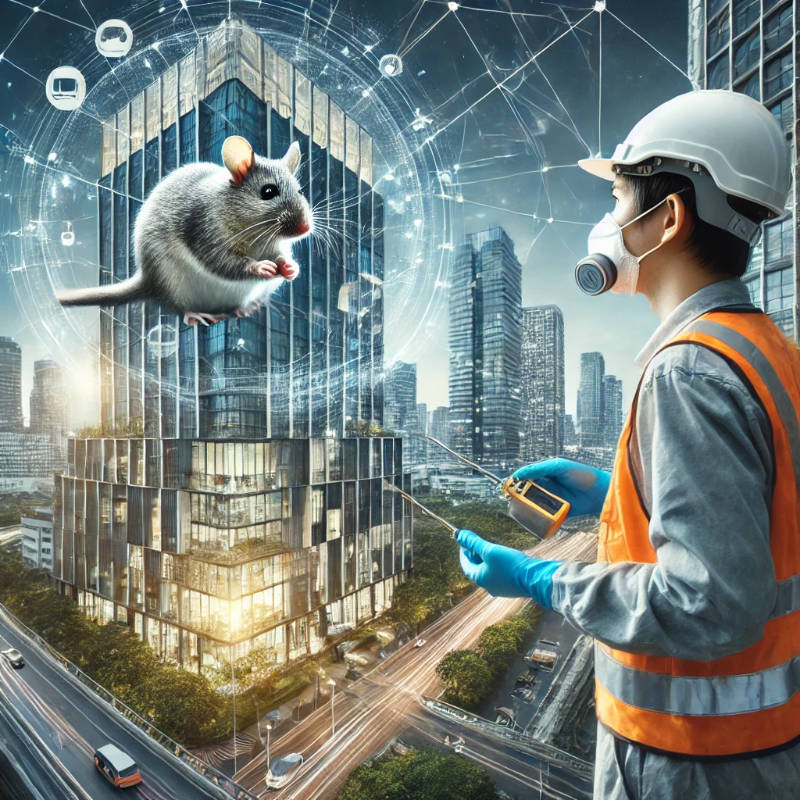
2025 trends in urban pest control:
- Non-toxic rodent control: More humane and eco-friendly methods, such as trapping and deterrents, are becoming popular in cities to control rodent populations.
- Proactive monitoring: Pest control companies offer more frequent inspections and monitoring services to prevent infestations in high-risk urban areas.
- Intelligent buildings: Some new buildings are designed with pest-resistant materials and integrated pest control technologies, creating a proactive solution to structural pest problems.
5. Personalized Pest Control Plans for Homes and Businesses
In 2025 pest control trends, there is a growing demand for personalized, on-demand pest control services. Homeowners and businesses alike are seeking customized plans tailored to their unique pest control needs, whether it’s a seasonal inspection or an urgent response to an infestation.
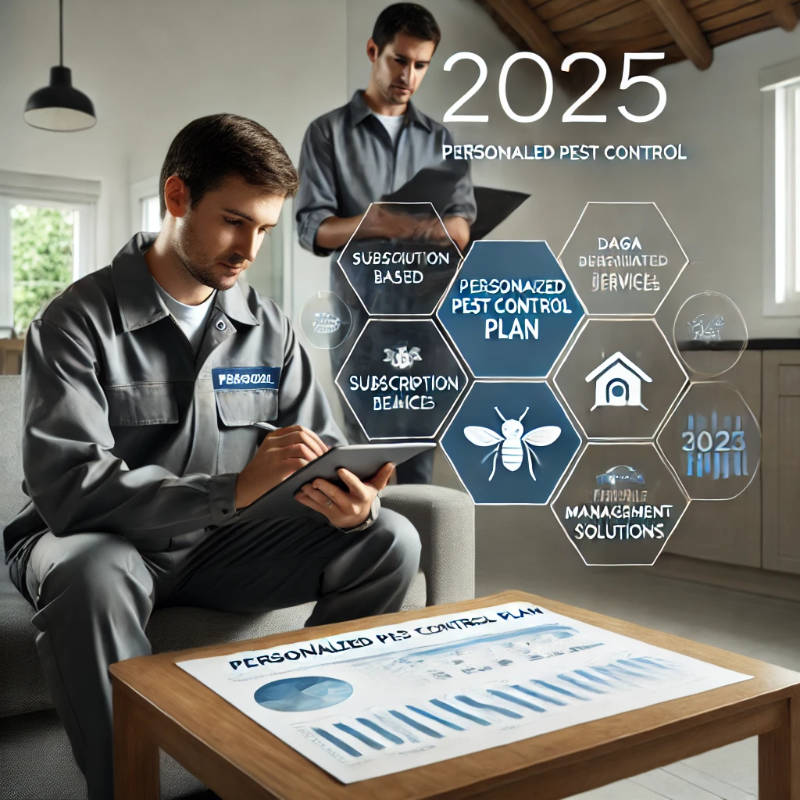
Personalized pest control plans include:
- Subscription-based services: Monthly or quarterly subscription models offer regular pest monitoring, prevention, and treatment services, providing customers with peace of mind.
- Data-driven pest management: Data analytics help pest control companies offer more precise, targeted solutions, reducing the need for broad-spectrum pesticides.
- Pest control apps: Digital platforms are emerging that allow customers to manage their pest control services online, schedule treatments, and receive notifications on the status of their property.
6. Regulatory Changes and Ethical Practices
As governments introduce stricter regulations on pesticide use and sustainability practices, pest control companies must adapt. In 2025, regulatory changes will significantly shape how pest control is carried out, particularly in environmentally sensitive areas.
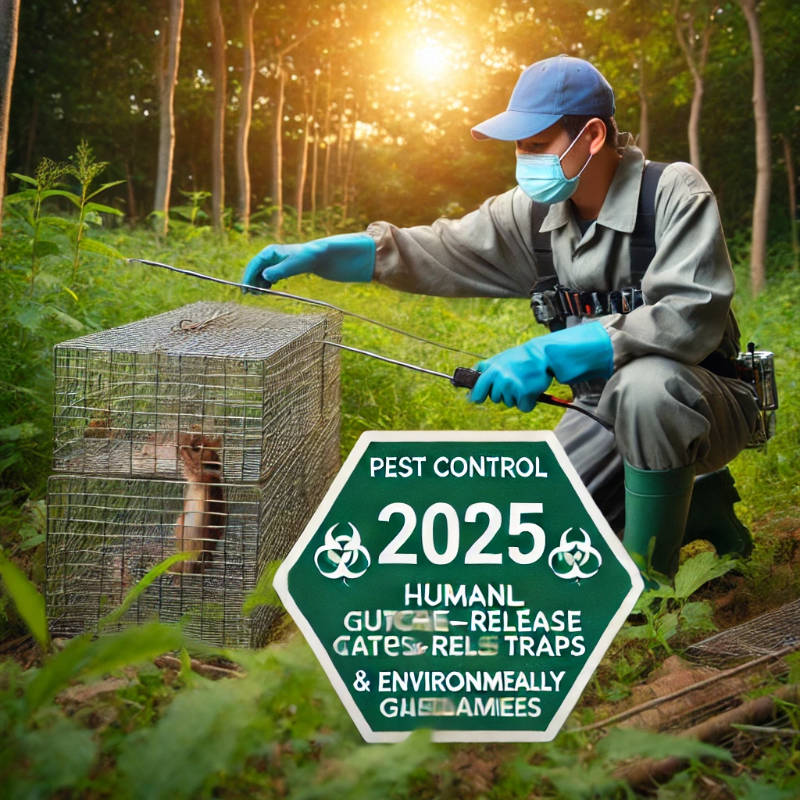
Key regulatory trends:
- Bans on harmful pesticides: Governments increasingly restrict or ban certain chemicals, pushing the industry to innovate with safer alternatives.
- Ethical treatment of pests: Humane treatment methods, such as catch-and-release traps, are gaining traction, with regulations favoring ethical pest control approaches.
- Licensing and certification: Pest control professionals must stay current with certifications and training to comply with evolving regulations and best practices.
7. Expansion of Niche Pest Control Services
In 2025, niche pest control services are expected to expand as businesses seek to specialize and stand out in a competitive market. These services cater to specific industries or pest types, offering tailored expertise for challenging scenarios.
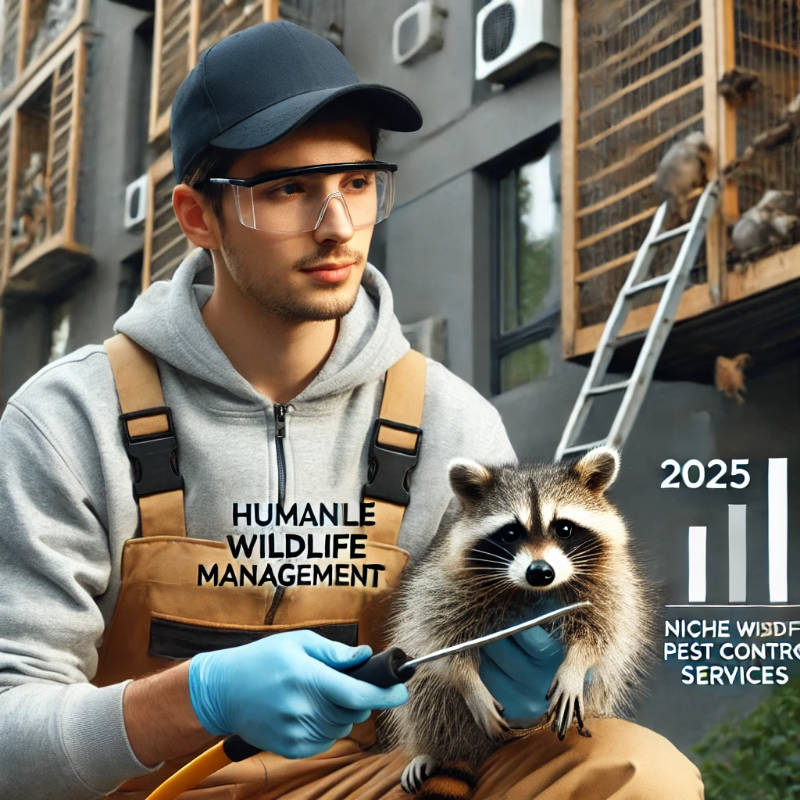
Examples of niche services:
- Post-construction pest control: As construction booms, there is increased demand for pest control services that focus on preventing infestations in newly built structures.
- Wildlife management: Managing urban wildlife such as raccoons, squirrels, and birds is becoming a specialized service, as these animals pose unique challenges in cities.
- Healthcare pest control: Strict regulations in healthcare environments are leading to the need for specialized pest control services that ensure compliance with health and safety standards.
Stay Ahead of 2025 Pest Control Trends
Explore the Future of Pest Management Today!
Conclusion: Preparing for the Future of Pest Control
The pest control industry is evolving, driven by technological advancements, environmental awareness, and changing regulations. As we move into the 2025 pest control trends, pest control professionals must adapt by embracing innovation, sustainability, and ethical practices. Whether you’re a small business owner offering personalized services or a larger company utilizing smart technologies, staying ahead of these trends will be crucial for success in a competitive market. By focusing on eco-friendly solutions, proactive pest management, and adapting to climate change, the pest control industry is set to enter a new era of growth and innovation.
Additional Resources for Pest Control Professionals
For more information on the trends, regulations, and best practices shaping the pest control industry in 2025, check out these authoritative resources:
- EPA Pesticide Programs: Explore regulations and guidelines on pesticide use from the U.S. Environmental Protection Agency.
- CDC Vector-Borne Diseases: Learn about the diseases transmitted by pests such as mosquitoes and ticks and how to prevent them.
- NPMA PestWorld: Get the latest insights on pest control standards, certifications, and industry news from the National Pest Management Association.
- WHO Pesticides and Health: Understand the health impacts of pesticides and regulations on their safe use from the World Health Organization.
- USDA Wildlife Services: Discover more about humane wildlife management services offered by the USDA.
- LEED Green Building Certifications: Learn about sustainable building practices and how pest-resistant materials are integrated into eco-friendly designs.
- FAO Integrated Pest Management: Explore global sustainable pest management practices through the FAO’s IPM guidelines.

